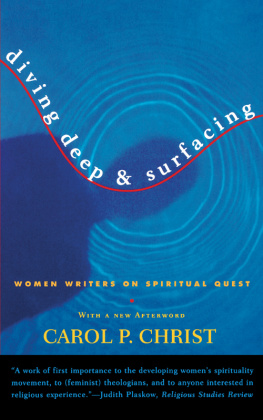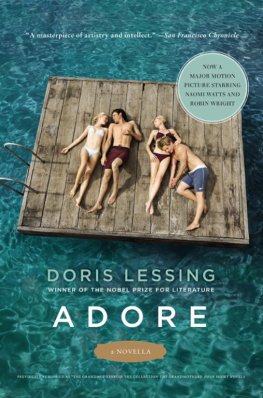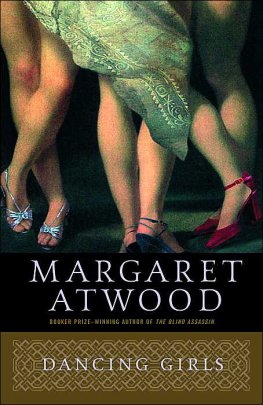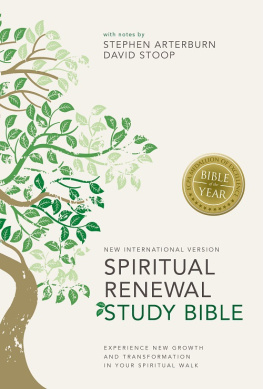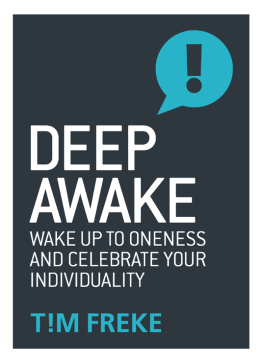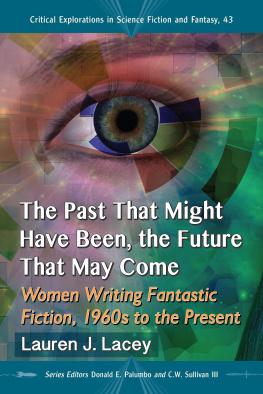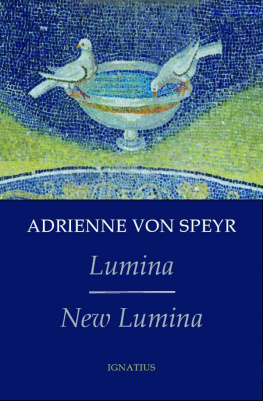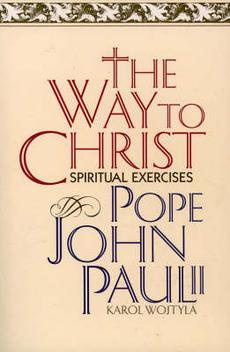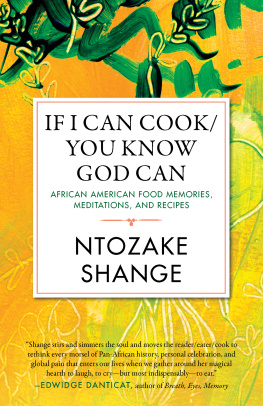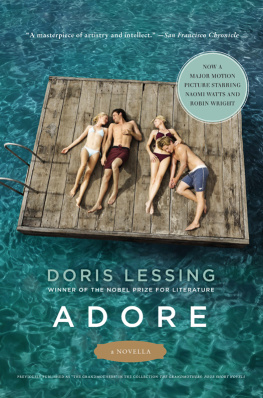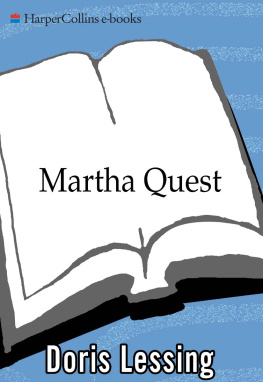
To my grandmothers
Mary Rita Inglis Christ
18981960
and
Lena Marie Searing Bergman
18911970
whose sense of the mysteries of life inspired my spiritual quest
And to my two friends and colleagues
Judith Plaskow
and
Naomi Goldenberg
who have supported my work on this book
and whose thinking has become
intertwined with mine over
many years of work together
Preface to the Second Edition
IN The Flight of the Seventh Moon the Native American shaman Agnes Whistling Elk teaches Lynn Andrews a ritual of giveaway in which she ties a copy of Andrews book Medicine Woman to a tree with ribbons, leaving it there for a passer-by to take. In this way Lynn Andrews learns that her book is not hers, that it has come through her, but must find its own way in the world. In the years since I finished Diving Deep and Surfacing, I have learned that it too has found its own way. Wherever I speak, I am profoundly touched by women and men who tell me that Diving Deep has changed their lives. When this happens I am reminded that I am not alone. I am profoundly renewed and inspired with a sense of responsibility as I learn that I, like the authors I wrote about, was able to articulate something others were feeling too. In Tilburg, the Netherlands, I was asked to meet with a class of twenty women at the Theological University who were using Diving Deep as their major resource. As I listened to a tall, strapping young theological student present the classs questions to me in flawless, Dutch-accented English, I felt the dream of a common language coming into being.
I now feel an enormous distance from the young woman in her twenties who first began late at night in Montreal in June 1973 to name her thoughts about prophetic vision and womens spiritual quest in Doris Lessings The Four-Gated City. I have a vivid image of her sitting on the floor long after midnight, sorting sheaves of yellow notebook paper with quotes and ideas written on them into piles, trying to bring order to the many insights and feelings she had had during the previous years when Lessings work was one of her few anchors in a sea of patriarchal writing about religion. That young woman lived in a very different universe than I do now, a world in which Beyond God the Father and other classic works in feminist theology had not yet been published. Though she had the constant support of her friend and sister feminist theologian Judith Plaskow, she felt very alone and often wondered if there was anyone besides her friend Judith who could understand the vision, the experience, she was trying to name. Somehow she held tight to her intuition, validated in the words of Lessing, that if she was feeling something deeply in that growing place within herself, then others must be feeling it too, because others are products of the same times, the same historical and cultural forces. Though she knew this to be true at some level of her being, she continually doubted herself and her ideas. All around her the voices of patriarchy were throbbing at [her] ears like midges, [telling her] nothing, nothing of origins, nothing [she] needed to know, nothing that could re-member [her]. I admire her bravery forged in ignorance of the enormity of the task she was undertaking and of the support she would receive from other women as she named her experiences, insights, and visions. I feel for the nothingness and isolation she knew. Sometimes I am amazed that any of us survived those times to speak new language. And then I remember that sisterhood is indeed powerful. Without my friends, my students, my colleagues in the Women and Religion section of the American Academy of Religion and in the New York Feminist Scholars in Religion, I would never have been able to write Diving Deep.
One of the conflicts I felt in writing Diving Deep had to do with voice. Every word of my book was forged in the crucible of personal experience and struggle. And yet everything in my training told me that I had to present my work in an impersonal, dispassionate, third-person objective scholarly voice. I desperately wanted my work to be accepted by other scholars, by male scholars who hold the power in my field, because I wanted to find my way back into graduate teaching in Religious Studies, where I felt I could have the most impact on the future of feminist studies in religion. But I also wanted to be true to my own experience and to write in a way that would be understood by many other women.
This conflict highlights a significant methodological issue in the field of feminist studies. Many feminist scholars recognize that academic writing is often unnecessarily opaque and inaccessible. Because we feel an obligation to the community out of which our scholarship has emerged, we try to write in a way that is both scholarly and comprehensible to the nonspecialist. This sometimes means that our work is unfairly dismissed as being unscholarly. Even more critical, and more deeply challenging to the scholarly ethos, is our recognition that objectivity is a myth. We understand that even the most seemingly objective scholarship in every field reflects an implicit interest in preserving the patriarchal status quo, including certain notions of canon, authority, and tradition from which the contributions of women and others have been excluded. However, because these concerns are usually unstated, they often go unrecognized. But when feminist scholars discuss the interests which inspire our work, such as understanding our own lives and the lives of other women and transforming scholarship and the social world in which it is embedded, our work is often dismissed as being merely personal or polemical. Until the scholarly ethos is transformed, our work will appear anomolous within it. The transformation of the ethos of scholarship is one of the most serious tasks we face as feminist scholars.
In Diving Deep, I made the uneasy compromise of relegating the personal experience which inspired my work to the preface and writing the rest of the book in a voice which was third person, but not dispassionate. If I were writing Diving Deep now, I would change all the references to women and their experiences to women and our experiences and I would write more directly about my own life, rather than disguising it with phrases like a woman feels... In my current writing, I am seeking to find a voice and a style of writing that is passionate, personal, political and scholarly, and reflective. I also regret that I did not insist that the methodological reflections in my article Feminist Studies in Religion and Literature, which my editor rightly recognized was written in a dispassionate voice not compatible with the rest of my manuscript, be included as an appendix to Diving Deep. But I know that the reader of Diving Deep connects to both its passion and its scholarship.
Diving Deep was written at a time when most white feminist theorists were using the term womens experience uncritically. Though our sources for the most part reflected white, North American or European, twentieth-century middle-class womens experiences, we wrote as if womens experiences were undifferentiated and universal. In the intervening years, feminist theorists who are not whiteNorth American or Europeanand middle class have criticized the false universalism implicit in much of the feminist theory developed by white feminists. Though I discussed the work of one nonwhite middle-class North American writer in

